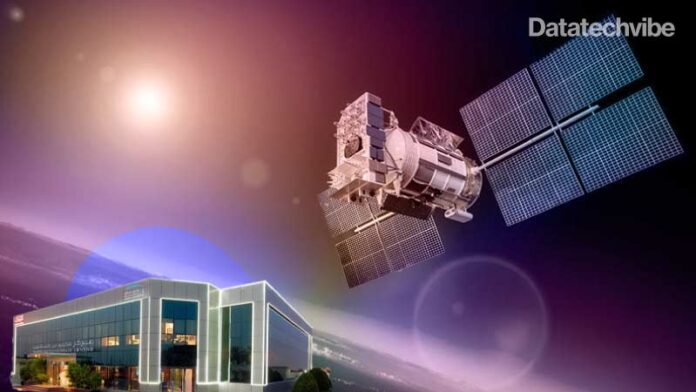In partnership with the Saudi Space Commission, Huawei unveiled Future Space, its first technology experience centre
Saudi Arabia has played a significant role in developing the regional space industry over the years. It established the Arab Satellite Communications Organisation (Arabsat), launched numerous satellites, funded research initiatives, and most recently established the Saudi Space Commission to coordinate and oversee all space-related activities in the country. With the Kingdom moving towards a progressive quality of life, bold steps are now being taken toward serving society through innovative future technologies.
The establishment of the Saudi Space Commission in December 2018 by royal order demonstrates the Kingdom’s shared objective of improving the security of its residents while actively fostering the possibility of lucrative commercial and financial innovations. Since its establishment, it has participated in numerous international projects and developed a proactive national space plan for the Kingdom.
Development objectives
Saudi Arabia recently joined the Artemis Accords, demonstrating its commitment to sustainable space exploration for the benefit of all humankind. The Artemis Accords are a set of principles agreed by the states’ governments participating in the Artemis program. They define the principles of cooperation and civil activities for exploring and using the moon, Mars, comets and asteroids for peaceful purposes.
The Accords were signed by the CEO of the Saudi Space Commission, Mohammed bin Saud Al-Tamimi, on behalf of the Kingdom of Saudi Arabia. Saudi Arabia is the 21st country to sign the agreement. The Accords offer new opportunities for the country’s space industry and the research sector and enable active contribution to Artemis activities.
Saudi Arabia is the seventh country to sign, and NASA expects other major economies to follow suit due to the oil-rich country’s interest in space cooperation. Saudi Arabia’s newly discovered interest in working together on space projects may make it more susceptible to balancing the effects of Russia on the world oil market, given its dominant position in the fossil energy sector.
In order to protect national security interests from space-related hazards and to promote cumulative growth and advancement, the Saudi Space Commission (SSC) has devised primary objectives.

Growing collaborations
Recently, in partnership with the Saudi Space Commission, Huawei unveiled Future Space, its first technology experience centre in Saudi Arabia. From Tuwaiq to Sohail is a 1,500-square metre facility open to the public and will host an estimated 200,000 visitors over the next five years.
The Saudi Space Commission relationship is aligned with its dedication to corporate social responsibility, fostering homegrown talent, and actively assisting the Kingdom’s digital transformation journey.
“Future Space is one of the world’s most advanced technology experience centres. We want to expose young people to the most cutting-edge technologies and inspire them to imagine technology in new ways. Partnering with a global technology leader such as Huawei enables us to bring real-world and proven technology solutions that can positively impact society,” said Dr Mohammed Altamimi, CEO, Saudi Space Commission.
In the area of the peaceful use of space, the Commission also inked a collaboration agreement with its French equivalent, the National Center for Space Studies. Both organisations will build a system for monitoring the climate from space and foster a conducive business environment.
Current Space Programs
The Saudi Space Commission is currently developing two space programs:
The Ajyal Program
The Space Generations (Ajyal) program is an SSC program focused on nurturing national human capital in the field of space science and technology. The program seeks to achieve its goals through nine constituent projects.
The program was developed in fulfilment of Vision 2030’s mandates in two main areas:
- Developing human cadres capable of managing the Saudi space sector.
- Using space sciences inspires young Saudi generations and encourages them to take specialisms in science, technology, engineering and mathematics.
Orbital Sites Reservation Project
The orbital slots project seeks to meet the need for orbital slots in Saudi Arabia now and in the future.
Two of the project’s main objectives are:
- Eliminating Saudi Arabia’s need for leasing orbital slots from foreign parties.
- Minimising expenditure on foreign satellite operators and enhancing the services provided to national sectors.
Towards a better future
Saudi Arabia’s international agreements unlock new avenues for joint cooperation in investment, space, energy, ICT, and health. The agreements align with Saudi Vision 2030, led by HRH Prince Mohammed bin Salman, seeking wider investment opportunities in promising sectors that can benefit the nation. The Kingdom aims to abide by the peacefulness considerations in such a manner that enhances the livelihood of citizens in Saudi Arabia and achieves the good of humanity at large. By adopting such a proactive approach, the Kingdom’s government aims to inspire young generations to be bold, creative and forward-looking in their business practices.
If you liked reading this, you might like our other stories
Velocity — Data and Analytics Summit Special KSA Edition Announced
AI – How Or Why?









